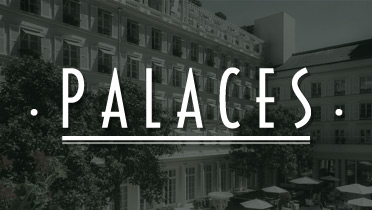Thailand, Chiang Rai
Four Seasons Tented Camp Golden Triangle
In the middle of a bamboo jungle along the Ruak River, an arm of the Mekong, we find a unique campground, a perfect blend of luxury and wild unspoiled nature. Far from the hustle and bustle of the city of Chiang Rai, the fifteen luxurious tents of the Four Seasons Tented Camp are spread over a kilometer, with superb views of Burma and the mountains of Laos. All organized in the same manner, they possess a simple and refined décor. The elegant furniture is made of wood, bamboo and leather, and the immense copper bathtub rests on a wooden plank. The Non Yao restaurant proposes Thai, Laotian, Burmese and international specialties. This luxury complex offers unusual excursions into the jungle on the back of an elephant and for relaxation, there’s a luxurious spa and a magnificent swimming pool. For seekers of adventure and luxury in the heart of a tropical jungle, the Four Seasons Tented Camp is the perfect refuge.
Chiang Rai
Bordered by Myanmar and Laos, northern Thailand is a land of mountains covered with forests, jungles and rivers. It’s the most rural part of the country. It’s also the region of the legendary and historical Lan Na kingdom, “the land of a thousand rivers.”
Located at the administrative border of Laos, Thailand and Burma, the kingdom consisted of a number of more or less autonomous city states which united different ethnic groups including Lahus, Hmongs, Akhas, Lisus, Yaos and Karens. Today, these ethnic minorities continue to live in the mountains and the Lan Na kingdom has left an important artistic and religious heritage behind it. At Chiang Mai or Northern Rose, there are more than 300 temples spread throughout the region. It is also home to these mountain tribes who live in harmony with each other in spite of their different customs.
As a gateway to the famous Golden Triangle, Chiang Rai lived for a long time off the poppy culture. Opium traffic was the primary source of income for these mountain populations. Since the kingdom decided to fight drug traffic, the city has become a popular tourist destination and a departure point for a number of excursions into the mist covered mountains to meet local tribes, proud of their ancestral culture.
Luxury adventurers
In the middle of a bamboo jungle along the Ruak River, one of the arms of the Mekong, there’s a unique camp that combines luxury and wild nature.
Far from the hustle and bustle of the city, the fifteen luxurious tents of the Four Seasons Tented Camp Golden Triangle stretches over one kilometer with superb views of the river, Burma, the present day Myanmar, and the mountains of Laos. Accessible only by boat, it’s the perfect refuge for luxury adventurers. Each tent is named after a mountain tribe, an endemic plant or a local animal. They are all organized in the same fashion although the decors are all different from one another. After going through the door with strange doorknobs in the form of elephant tusks, we enter a living area which recalls the tents of 19th century explorers. The furniture is rustic but elegant and supported by a wooden plank. Everything is hand made using local materials like wood, bamboo and leather. In the bedroom space, we find a large bed covered with a mosquito net, a desk and a bookshelf filled with books and magazines on the history, culture, flora and fauna of the region. In the center of the tent, there is a large hand tooled copper bathtub which can accommodate two people. A large open-air terrace possesses a rain water shower.
Dinner at the Nong Yao restaurant can be taken either at a long common table or at separate tables. The Nong Yao proposes Thai, Laotian, Burmese and international dishes in the heart of the tropical jungle.
The Four Seasons Tented Camp has a swimming pool of course, but the most amusing activity is an excursion through the jungle on the back of an elephant. And for those worried about a backache after this original excursion, there’s no need to worry. The Four Seasons Tented Camp has thought of everything including a special back treatment at its spa.
Among the wide variety of activities available, elephant taming is definitely the most unusual. Accompanied by your cornac, you enter the jungle and learn how to guide these animals.
details about this hotel
Description:
Five stars / Member Four Seasons Hotels and Resorts / Luxury / Restaurant with Asian and Western cuisine / Private dining / Open-air bar / Outdoor swimming pool / Spa / Fireplace / Elephant trekking / Cooking classes / Traditional craft classes / Children over 12 accepted / For adults & teens
When open:
Open all year
Number of rooms and suites:
15 luxury tents
Prices:
Double occupancy from approximately 1,320 euros
Nearest airport:
Chiang Rai International Airport (CNX) - Chiang Rai
Hotel details:
FOUR SEASONS TENTED CAMP GOLDEN TRIANGLE
P.O. Box 18
Chiang Saen Post Office
Chiang Rai 57150
Thailand
details about this country
Flight time from Paris:
Approximately 10 hours
Time difference from Paris:
+ 5 hours in summer / + 6 hours in winter
Climate:
Tropical climate with two seasons : the rainy season (June to October), during which in spite of heavy but short rainstorms, the weather remains sunny. In the north of the country, rain is more abundant and temperatures much cooler.
During the dry season (March to May), temperatures are very high.
In southern Thailand, the seasons are less distinct, and it can rain at any time of year.
It’s advisable not to visit Thailand between September and October as these months are known for their typhoons.
Necessary travel documents for French nationals:
Passport valid six months after return date.
No visa required for visits of less than 30 days (with a confirmed return flight)
No required vaccinations
Currency:
The baht (B)
Languages spoken:
Thai, English and different regional dialects
Book by phone
+33 1 75 43 70 26 *Our reservation department is always happy to assist you via phone or via email. We are open Monday to Friday 9am to 18pm (GMT +1).
- Best rates guaranteed
- Upgrade upon availability
- No booking fees
- Instant confirmation






















